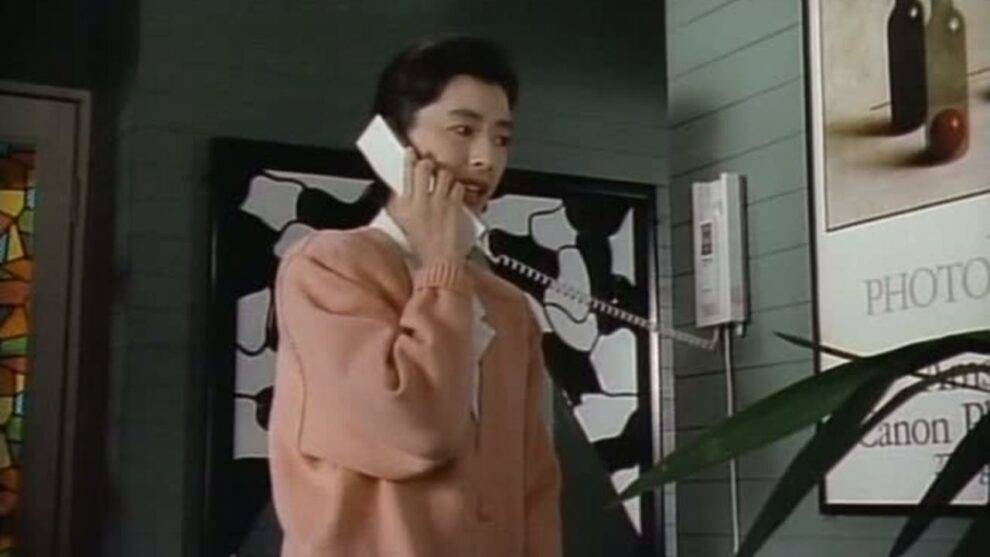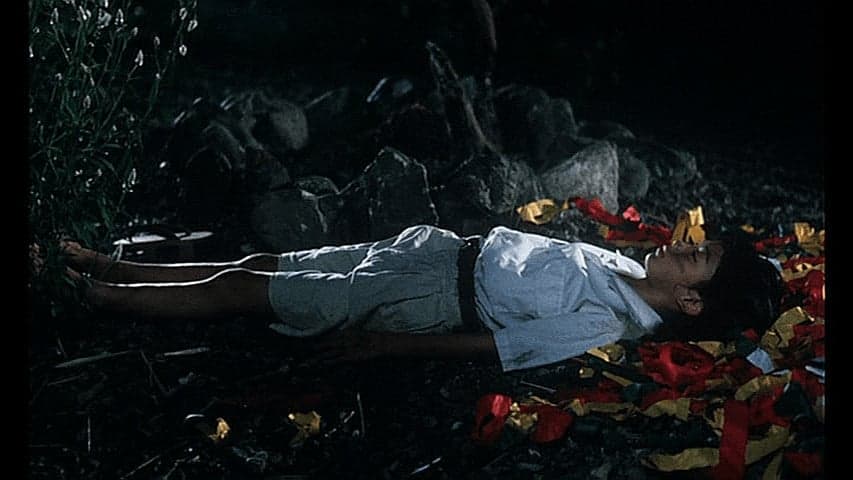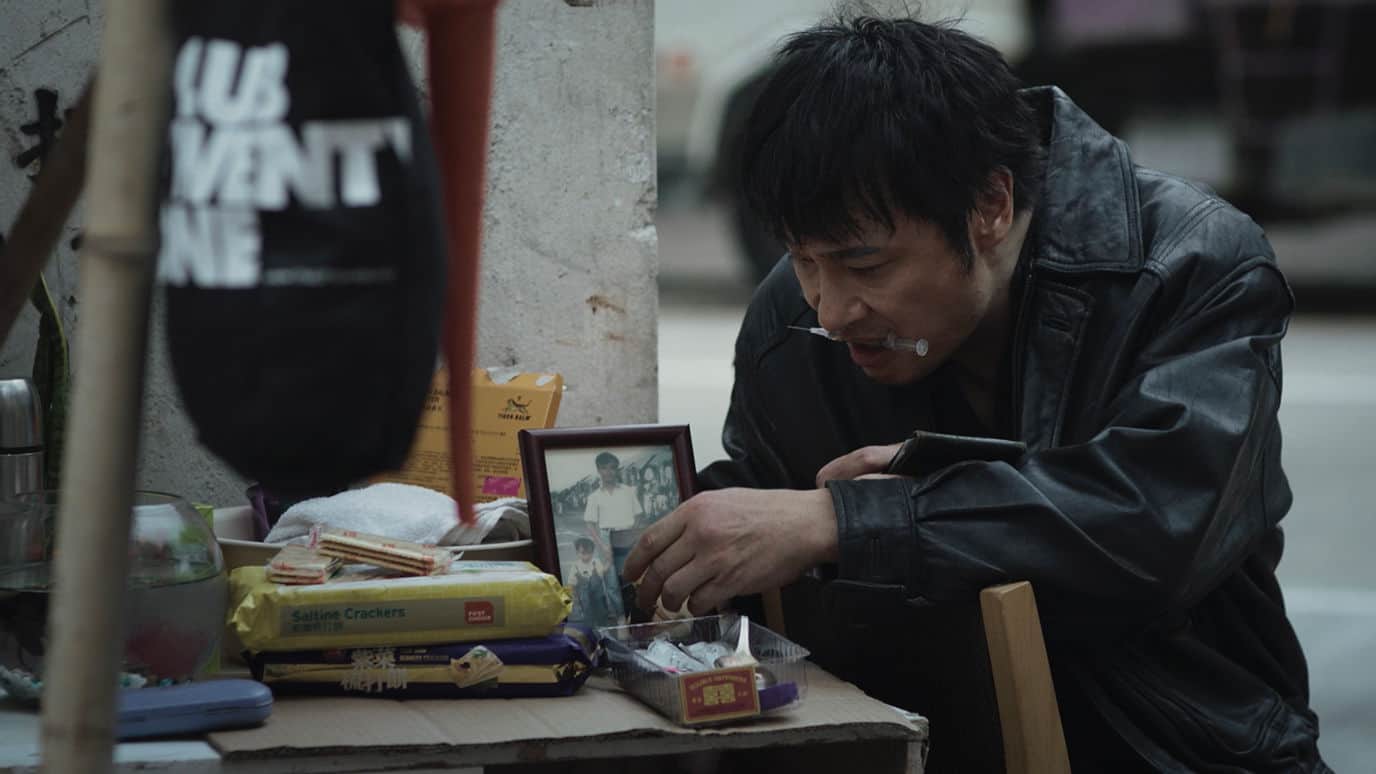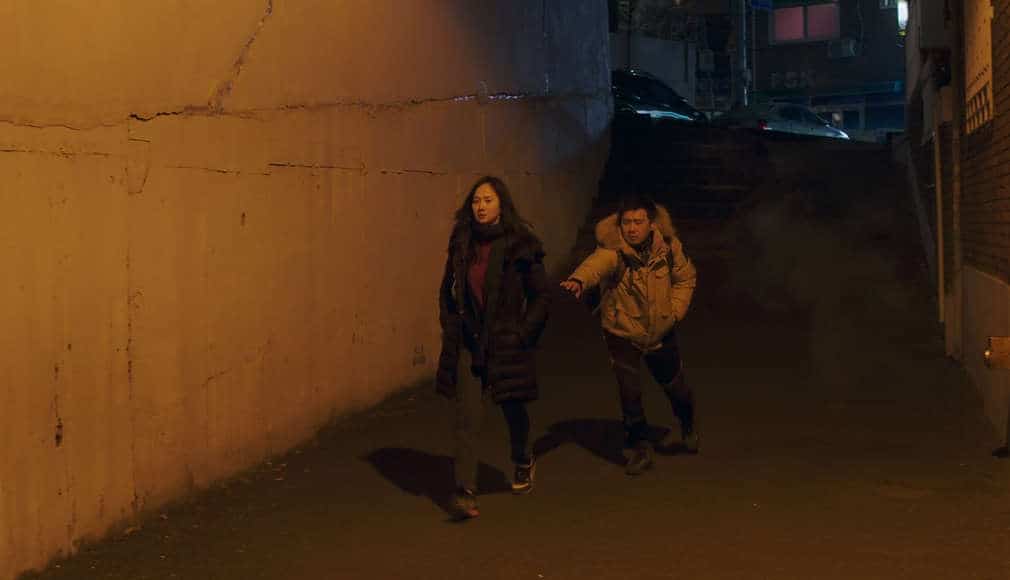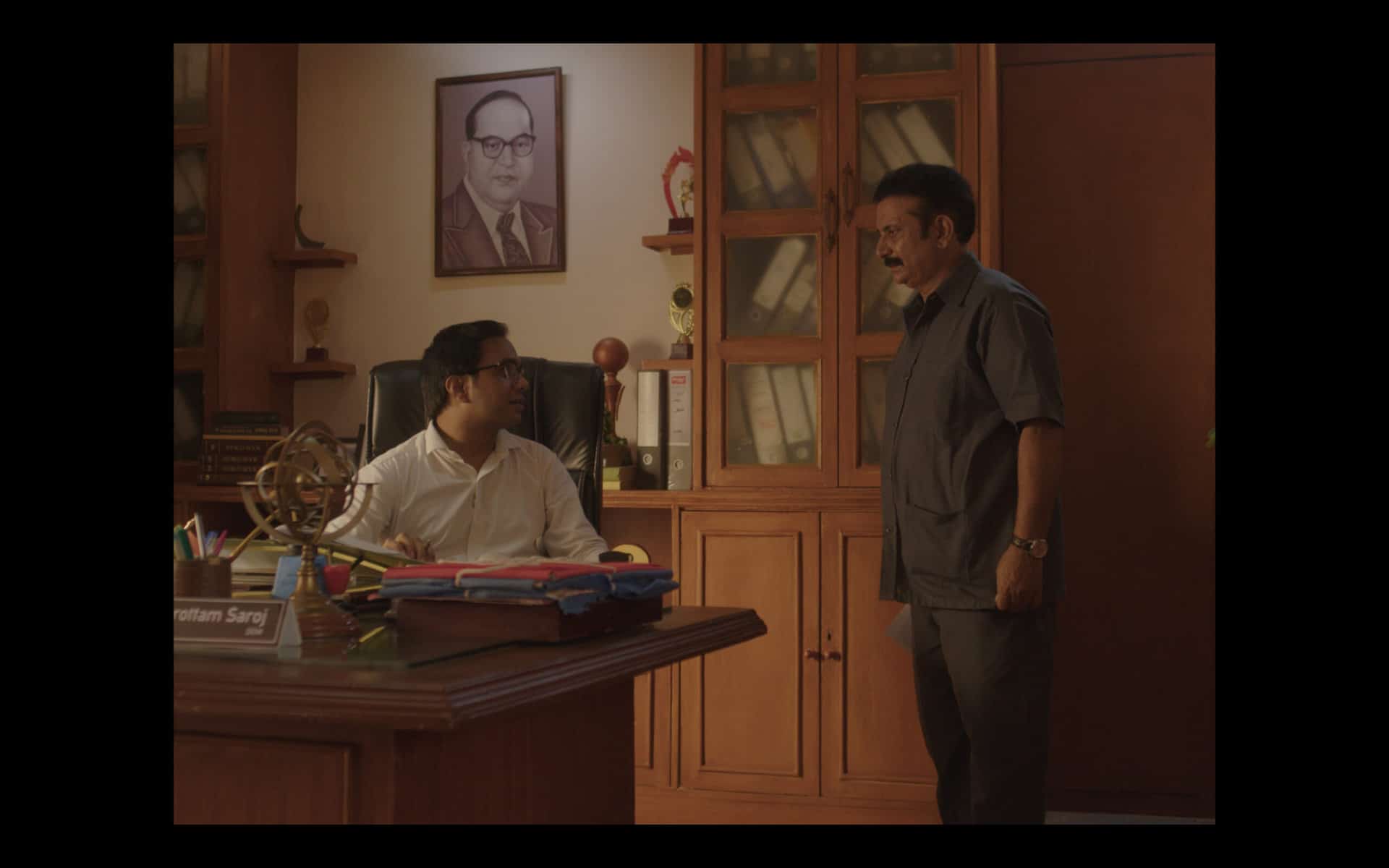I have to admit that one of the pleasures I have been lately experiencing in my dealings with Asian cinema is the restoration/remastering of a number of movies from the past, particularly the ones that were quite hard to find nowadays. Banmei Takahashi's “Door”, which actually stars his wife, Keiko Takahashi, is definitely one of those movies, particularly because it uses tension and violence in order to make a number of sociopolitical comments.
“Door” is screening at Bucheon International Fantastic Film Festival
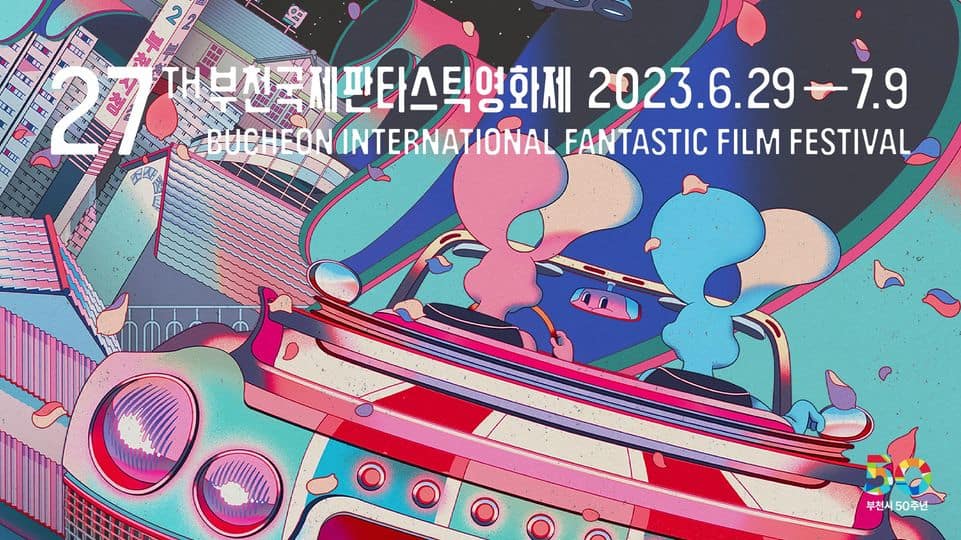
Yasuko, a housewife, lives in an urban high-rise apartment with her husband Satoru and her little son, Takuto. Their lives go on in harmony, with the only issues being that Satoru is overworked and he does not have that much time for his family, and the annoying plethora of spam calls the couple receive on the phone, through the mail and by door-to-door salesmen. During a three day absence of Satoru, she gets particularly annoyed by a rather annoying salesman who even tries to forcefully give her his pamphlet, and slams the door on his fingers. This incident is when her nightmare starts, but nothing could prepare Yasuko for the psychopath salesman.
Check also this article
Banmei Takahashi masterfully uses everyday tropes that were particularly prevalent in the 80s in order to create a claustrophobic thriller that makes the most of its restricted setting. Particularly the way the door and especially the knob are implemented in the narrative as a constant sense of danger is a feat in itself, highlighting Takahashi's direction in the best fashion.
Also of note are a number of brief and longer scenes that are implemented as metaphors in order for the director to make his rather layered comments. Apart from the evident annoyance the concept of everselling presented to housewives in particular, who had to endure everything as they spent most of the time in their apartments, the whole concept of the salesman can easily be perceived as a critique of capitalism, and how it forcefully tries to enter the lives of people. The absence of the husband results in another comment that realistically shows how the particular generation, and especially the men, were so focused on their jobs that they essentially neglected their families, with Satoru shining through his absence through all the horrible events that take place in the story. That the remark still continues to be present in today's Japanese cinema is what deems “Door” still a relevant movie.
Furthermore, when the salesman starts kicking the door, and practically throughout his attack, none of the neighbors seem to notice, in a comment regarding the alienation the megalopolis “offered”. The only one who opens her apartment door actually is an old lady with an eye-patch, who is obviously unable to do anything, in another scene that could be perceived as a comment regarding the then previous generation. Also of note is the somewhat cynical humor that creeps its way into a number of scenes, with the finale being the apogee of this tendency.
Apart from the context, though, the movie eventually becomes a quite violent thriller, as the home invasion aspect gets much more intense the closer it reaches to the end of its 94 minutes, with Takahashi even including the kid in the proceedings, in an approach that was bound to be difficult. It is in these scenes, however, that the majority of the aspects of the movie find their apogee. Yasushi Sasakibara's cinematography, which already presented the apartment as a claustrophobic setting turns it into a truly suffocating one, adding intensely to the horror element. Junichi Kikuchi's editing results in a faster pace that also works well for the particular scenes, in an overall quite economic job. Lastly, Keiko Takahashi's acting reaches its zenith in her violent desperation, with the same applying to Daijiro Tsutsumi's mania, which is impressively regulated by a surprising, brief calmness, which is also actually part of the overall sense of humor.
Although “Door” has the aesthetics of a b-movie, its rich context and the overall presentation, including the 4K Remastering, results in a film that is as entertaining to watch as it is relevant today.


